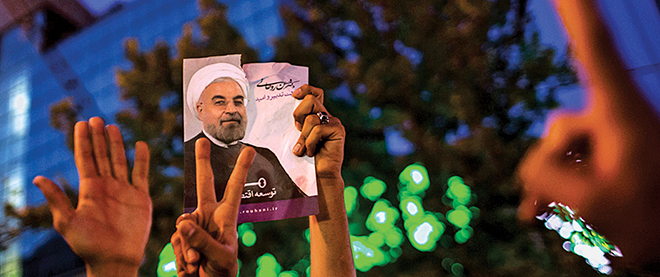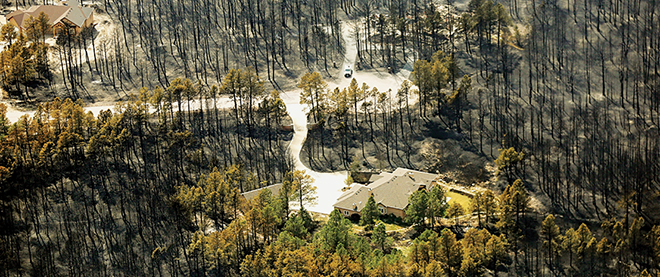Good news, bad news
Political football, spending scandals and a wedding ring — cheap!
Fars News/Sina Shiri/Reuters
Share
Good news

Out with the old
Pretty much anyone would have been a welcome change, but Iran’s newly elected president, Hasan Rowhani, marks an agreeable turn from Mahmoud Ahmadinejad and his anti-Western rhetoric. It’s tempting to dismiss Rowhani as a puppet of Iran’s ruling clerics; even as he pledged to “build trust” with the West, he reasserted the country’s nuclear ambitions. But his stated goodwill offers the prospect of meaningful dialogue about the atomic program, and about Iran’s influence in the region. After eight years of Ahmadinejad, we’re glad to meet the good cop, or at least the not-crazy cop.
Enough of the head games
FIFA, soccer’s international governing body, has ruled that players can wear turbans on the field, saying there is no evidence they are a safety hazard. The ruling gave the Quebec Soccer Federation a face-saving way to end its much-condemned ban on head scarves. As a result, the national association has lifted its suspension of the Quebec federation, the Quebec government has one less political football to kick around, and most important, Sikh athletes can get back in the game.
Search and destroy
Google is taking steps to combat the proliferation of child pornography online. The firm is creating a database of known images that it plans to share with other Internet companies and law enforcement. The images are identified using a technology called “hashing” that allows Google’s computers to recognize and block them without them having to be viewed by humans. Google is also creating a fund to encourage the development of tools to fight child porn. Eradicating child porn is everyone’s responsibility, but Google is better positioned than most to make it happen.
Near death of a salesman
Pro poker player Eric Cloutier of Laguna Niguel, Calif., and his wife, Raquel, are still married despite the fact he accidently sold her $23,000 wedding ring for $10 at a garage sale. She had hidden the bauble in a watch box before entering hospital to give birth to their fifth child. Alyssa and Andrew Lossau found the ring inside the box and promptly returned it to the Cloutiers, who had made a teary televised appeal. “It is giving me faith in people again,” said Eric.
Bad news

Heart of darkness
Students from the Sardar Bahadur Khan Women’s University in Pakistan were the targets of two deadly attacks by a militant Sunni group last weekend. The group says it used a suicide bomber to destroy a university bus, killing 14 students. Militants then stormed the hospital where the wounded were being treated, shooting indiscriminately. At least 15 were killed in the five-hour siege. Both the hospital and the school, the only all-woman university in the province of Baluchistan, are closed indefinitely—another bloody win for terrorism.
Seeing red
Canada’s Senate is embroiled in spending scandals. Polls show rising support for its abolition. The Senate’s latest response to this crisis: It reportedly hired two motivational speakers to address its members. An email invitation this week to the event said it would “help bring a little perspective to the current situation.” When news of the event leaked, it was promptly suspended—proving that the chamber is at least still capable of being a place of “sober second thought,” as John A. Macdonald once described it.
Small boat, big issue
Four Vancouver adventurers are aiming to become the first people to row through the Northwest Passage. Kevin Vallely, Paul Gleeson, Frank Wolf and Denis Barnett plan to start the three-month 3,000-km journey from Inuvik, N.W.T., on July 1 using a specially made eight-metre-long boat. As exciting as the project sounds, the fact that it is even theoretically possible shows the massive impact of climate change in the Arctic. The four hope the journey will draw attention to the issue of global warming and the deteriorating Arctic ice pack. Here’s hoping people listen.
TV diners
Researchers warned this week that kids who eat while watching TV or playing computer games face heightened risk of heart disease later in life. The scientists, who followed the eating habits of nearly 1,100 preschoolers, believe that the sensory diversion causes children to ignore “internal cues” that they’re feeling full, and makes them less inclined to sample the variety of foods needed for a balanced diet. And that’s a deflating thought: kids are distracted—but not enough to eat broccoli.